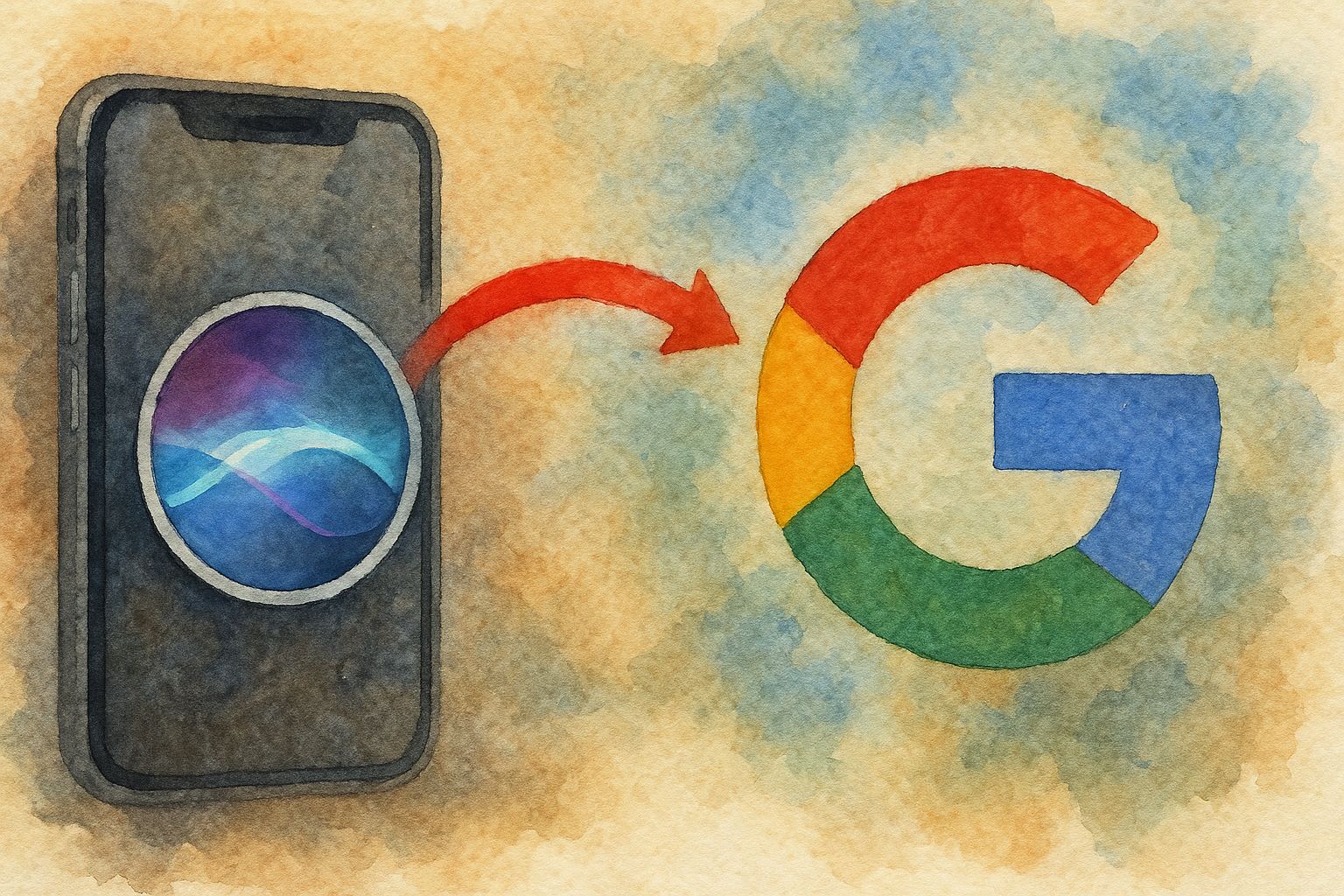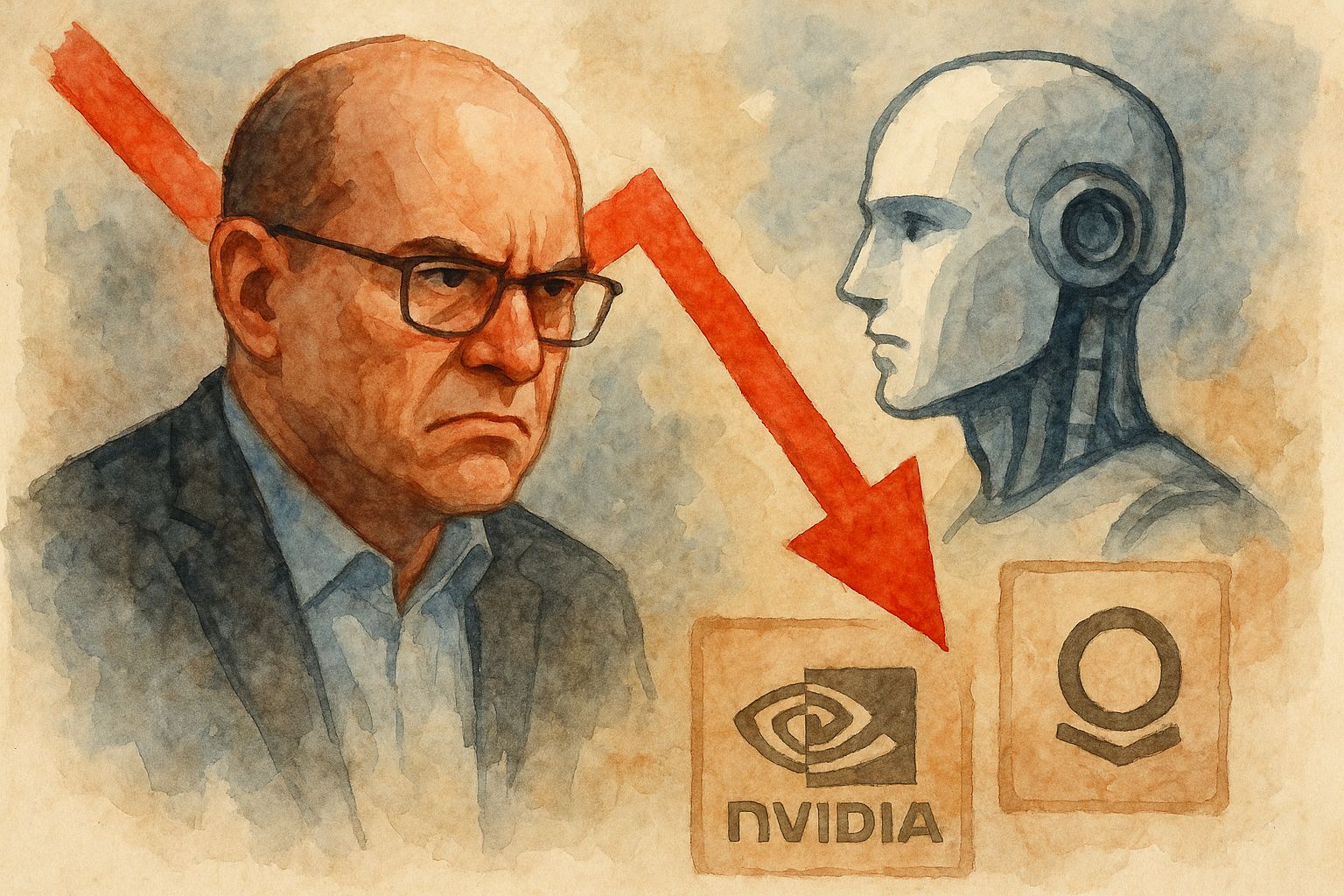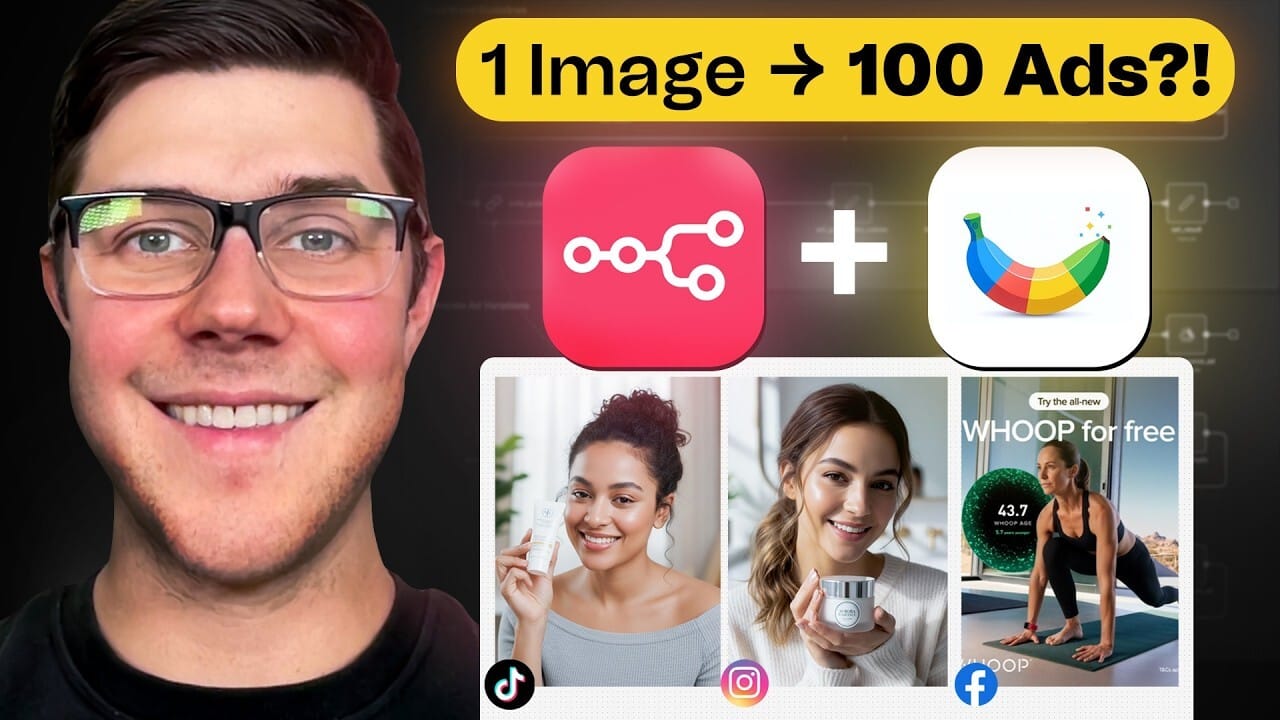- The Recap AI
- Posts
- Google plans to put AI data centers in space
Google plans to put AI data centers in space
PLUS: Michael Burry bets $1.1B against AI, Apple pays Google for Gemini, and Sora's mobile app
Good morning, AI enthusiast.
Google is looking beyond Earth to solve one of AI's biggest limitations: its massive energy consumption. A new research initiative explores putting AI data centers directly into orbit on solar-powered satellites.
This ambitious project signals a major shift in planning for AI's long-term infrastructure needs. But is a network of orbital data centers a truly viable path for future scaling, or is this moonshot destined to remain science fiction?
In today's AI recap:
Google's plan for AI data centers in space
Apple taps Google to power new Siri
Michael Burry's $1.1B bet against AI
8 trending AI Tools
Google's AI Moonshot

The Recap: Google is exploring a futuristic solution to AI’s immense energy needs with Project Suncatcher, a research initiative to place power-hungry AI data centers on solar-powered satellites in low-Earth orbit.
Unpacked:
A satellite's solar panel in a sun-synchronous orbit can be up to eight times more productive than one on Earth, providing nearly continuous clean energy.
Google tested its latest TPU chips for radiation tolerance and found they could survive a five-year mission without permanent failures.
The project could become roughly comparable in cost to terrestrial data centers by the mid-2030s, with a test mission planned with a company called Planet by 2027.
Bottom line: This project signals a fundamental shift in thinking about AI infrastructure, looking beyond Earth's resource limitations for future scaling. While still in early research, it highlights the industry's preparation for a future where computational demands far exceed today's capabilities.
Make Every Platform Work for Your Ads
Marketers waste millions on bad creatives.
You don’t have to.
Neurons AI predicts effectiveness in seconds.
Not days. Not weeks.
Test for recall, attention, impact, and more; before a dollar gets spent.
Brands like Google, Facebook, and Coca-Cola already trust it. Neurons clients saw results like +73% CTR, 2x CVR, and +20% brand awareness.
AI Tools of the Day
💻 Aider – Pair program with AI directly in your terminal, using git-awareness to intelligently edit your existing codebase.
⚡️ Flux – Design complex printed circuit boards in your browser with an AI co-pilot that assists from schematic to production.
🌐 Blockade Labs – Generate breathtaking, immersive 360° panoramic worlds and skyboxes from a simple text description.
🎶 Neural Frames – Create stunning, audio-reactive music videos where the visuals dynamically animate and sync perfectly to your track.
✨ Magic Patterns – Instantly turn product ideas into polished, production-ready UI components and interfaces just by describing them in plain text.
🗣️ Ditto – Automatically dub your video content into dozens of languages while preserving the unique characteristics of your own voice.
🗺️ Maps GPT – Discover unique places and plan custom trips by asking for a map of anything, like "all the best street art in Lisbon".
🧠 Minduck – Ditch the linear chat interface and collaborate with AI agents visually using an intuitive mind map to build out complex ideas.
Explore the Best AI Tools Directory to find tools that will 10x your output 📈
Apple Taps Google to Power Siri

The Recap: Apple is finalizing a deal to pay Google roughly $1 billion annually to use a custom 1.2 trillion-parameter version of its Gemini AI model to power a major overhaul of Siri, according to a new report.
Unpacked:
Apple plans to use Google’s model as a temporary solution while it continues developing its own in-house AI, with a comparable model potentially ready by 2026.
The new Gemini model would be a massive leap, reportedly eight times more complex than the 150 billion-parameter model currently used for Apple Intelligence features.
Before selecting Google, Apple also tested and considered models from other major players, including OpenAI and Anthropic.
Bottom line: This partnership is set to give Siri the significant boost needed to handle more complex, multi-step tasks for users. The move also highlights the immense cost and effort required to develop leading AI models, pushing even the world's largest tech companies toward strategic collaboration.
AI Training
The Recap: In this video, I'm going to show you how to build an AI system and automation using n8n and Nano Banana that lets you scale out hundreds of different ad creative variations from your winners. We're going to upload an image, analyze it using Google Gemini, and then use the Nano Banana image model to generate multiple ad variations positioned well based off of your brand guidelines, company voice, and preferred messaging.
P.S. We also launched a free AI Automation Community for those looking to build and sell AI Automations — Come join us!
Where AI Experts Share Their Best Work
Join our Free AI Automation Community
Join our FREE community AI Automation Mastery — where entrepreneurs, AI builders, and AI agency owners share templates, solve problems together, and learn from each other's wins (and mistakes).
What makes our community different:
Real peer support from people building actual AI businesses
Complete access to download our automation library of battle-tested n8n templates
Collaborate and problem-solve with AI experts when you get stuck
Dive into our course materials, collaborate with experienced builders, and turn automation challenges into shared wins. Join here (completely free).
'The Big Short' Bets Against AI

The Recap: Michael Burry, the investor famous for predicting the 2008 financial crisis, is now betting big against the AI boom. His firm, Scion Asset Management, revealed a massive short position against Nvidia and Palantir in its latest SEC filing.
Unpacked:
The $1.1 billion wager consists of put options worth roughly $912 million against Palantir and $187 million against Nvidia, making up nearly 80% of his firm's portfolio.
The news sent ripples through the market, with the tech-heavy Nasdaq falling over 2% and both Palantir and Nvidia shares tumbling significantly.
Palantir CEO Alex Karp forcefully pushed back on the bet, called the move "batshit crazy" and said it was motivating for his team to deliver stronger results.
Bottom line: A high-profile investor challenging the AI sector signals a potential shift in Wall Street's sentiment from pure optimism to cautious skepticism. This move forces the industry to confront whether the current surge in AI stock valuations is sustainable or if a market correction is overdue.
The Shortlist
Snap announced a $400M deal with Perplexity AI that will integrate the startup’s conversational search engine into the Snapchat app.
Amazon sued Perplexity AI, alleging the startup’s Comet browser agent covertly accesses customer accounts and automates purchases in violation of its terms of service.
Japan's CODA demanded that OpenAI stop using content from its members, including Studio Ghibli and Square Enix, to train its AI models, citing potential copyright infringement under Japanese law.
IBM confirmed it will lay off a "low single-digit percentage" of its global workforce as part of a rebalancing effort to focus on high-growth areas like AI and software.
What did you think of today's email?Before you go we’d love to know what you thought of today's newsletter. We read every single message to help improve The Recap experience. |
Signing off,
David, Lucas, Mitchell — The Recap editorial team



